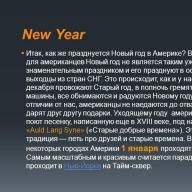Many people are interested in how their Russian names are written and sounded in Chinese. After all, Chinese is not English, into which any name can be easily translated. When translating names into Chinese, the sounds are transcribed, i.e. sounds that are more similar to the original are selected. But since there is a very limited number of sounds in the Chinese language, a Russian name transcribed into Chinese can sometimes sound completely different from the original.
Female names:
Augustine 奥古斯丁娜 ào gǔ sī dīng nà Ao gu sy ding na
Alexandra 阿里山德拉 ā lǐ shān dé lā And li shan de la
Sasha sà shā Sasha
Alesya 阿列夏 āliè xià A le sya
Lesya 列夏 liè xia Le xia
Alena 阿列娜 āliè nà Alyona
Alika 阿利卡 ā lì kǎHow about
Lika 利卡 lì kǎ Li ka
Alina 阿丽娜 ā lì nàIs it on
Aliya 阿利娅 ā lì yà Am I
Alice ài lì sī Ay Li Sy
Allah 阿拉 ālāA la
Amina 阿米纳 ā mǐ nà A mi na
Anastasia 阿娜斯塔西娅 ā nà sī tǎ xī yà And na sy ta si ya
Nastya nà sī jiā Na si jia
Anna ān nàAn on
Anya 阿尼娅 ā ní yà And neither do I
Angela ān rè lāAn zhe la
Aigul 艾古丽 ài gǔ lì Ai Gu Li
Aigul 艾久利 ài jiǔ lì Ai Jiu Li
Asel 阿谢利 ā xiè lì Did you sit down?
Aselka 阿谢利卡 ā xiè lì kǎ What about you?
Valentina 瓦伦蒂娜 wǎ lún dì nà Wa lun di na
Valya 瓦莉娅 wǎ lì yà Am I right
Valeria 瓦列里娅 wǎ liè lǐ yà Val le I
Vera wéi lā Wei la
Veronica 维罗尼卡 wéi luó ní kǎ Wei lo ni ka
Victoria 维克托利娅 wéi kè tuō lì yà Wei ke or me
Vika 维卡 wéi kǎ Wei ka
Vita 维塔 wéi tǎ Wei ta
Vlasta 夫拉斯塔 fu lā sī tǎ Fu la sy ta
Galina Jiā lì nàJia Li na
Galya 加利娅 jiā lì yàJia Li I
Glafira gē lā fēi lā Ge la fey la
Glasha gē lā shā Ge la sha
Guzel 古泽尔 gǔ zé ěr Gu Ze Er
Gulnaz 古丽娜斯 gǔ lì nà sīGu li na sy
Diana 黛安娜 dài ān nàGive an na
Daria dá lǐ yàAm I
Dasha dá shā Yes sha
Diana jì ā nà Ji na
Diyora 季约拉 jì yuē lā Ji yue la
Dilnoza jì lì nuò zā Ji li no za
Dilyara 季莉娅拉 jì lì yà lā Ji li ya la
Dorina duō lì nà Is it up to
Eva yē wá E va
Evgeniya 叶夫根尼娅 yè fū gēn ní yà Ye fu gen ni ya
Zhenya 热尼娅 rè ní yà Zhe neither I
Evgesha 叶夫格沙 yè fu gé shāYe fu ge sha
Ekaterina 叶卡特丽娜 yè kǎ tè lì nàE ka te li na
Katya kǎ jiā Ka jia
Elena yè lie nà E lie on
Lena 烈娜 Liè nà Lie on
Elizabeth 叶利扎维塔 yè lì zā wéi tǎYe Li Za Wei Ta
Lisa lì zā Li Tza
Zhazira 扎吉拉 zhā jí lā Zha ji la
Zhanna 然娜 rè nà Zhe on
Zlata zī lā tǎ Tzu la ta
Inna 伊娜 yī nà And on
Irina 伊丽娜 yī lì nà Or at
Ira yīlā And la
Camila kǎ mǐ lā Ka mi la
Kira jīlā Ji la
Christina kè lǐ sī jì nà Ke li si ji na
Ksenia Kè xiè ní yà Ke se ni ya
Ksyusha Kè xiū shāKe Xiu Sha
Larisa lā lì sàLa li sa
Lera liè lāLe la
Liana lì ā nà Lee a na
Lola luó lāLo la
Love liú bo weiLiu Bo Wei
Lyuba 刘巴 l iú bā Lu ba
Lyudmila liǔ dé mǐ lāLiu de mi la
Luda liǔ dá Liu yes
Maya 迈娅 mai yaMay I
Margarita 玛尔加丽塔 mǎ ěr jiā lì tǎMa er jia li ta
Margot 玛尔戈 mǎ ěr gēMa er ge
Marina 玛丽娜 mǎ lì nàRaspberries
Maria 玛丽娅 mǎ lì yà Am I
Masha 玛莎 mǎ shāMa sha
Martha 马尔法 mǎ"ěr fǎ Ma er fa
Milana mǐ lā nàMi la na
Miroslava 米罗斯拉瓦 mǐ luó sī lā wǎ Mi lo sy la va
Mira 米拉 mǐ lāMi la
Nadezhda nà jié rì dá Na jie zhi da
Nadya nà jiā Na jia
Natalya 娜塔利娅 nà tǎ lì yà Natalia
Natasha nà tǎ shā Na ta sha
Nigora 尼果拉 ní guǒ lā Not a goal
Nina ní nà Not at all
Olga ào ěr jiāAo er jia
Olya ào lì yà Am I
Oksana 奥克萨娜 à o kè sà nà Ao ke sa na
Polina bō lì nà Is it possible to
Roxana 罗克萨娜 luō kè sà nàLo ke sa na
Regina 列吉娜 liè jí nà Le ji na
Svetlana sī wéi tè lā nà Si wei te la na
Sveta sī wéi tǎSi Wei Ta
Sofia 索菲娅 suǒ fēi yàSo fay I
Taisiya 泰西娅 tài xi yàTai si ya
Tamara tǎ mǎ lā Ta ma la
Tatyana 塔季娅娜 tǎ jì yà nàTa ji I'm on
Tanya 塔尼娅 tǎ ní yà neither me
Ulyana 乌里扬娜 wū lǐ yáng nà Wu Li Yan on
Umida 乌米达 wū mǐ dá U mi yes
Fatima fǎ dì mǎ Fa di ma
Elina āi lì nàAy Li na
Enge 恩热 Ēn rè En zhe
Julia 尤利娅 yóu lì yà Julia
Yazilya 娅吉莉娅 yà jí lì yà Am I ji li am
Yana 娅娜 yà nà I'm on
Yaroslav 雅罗斯拉瓦 y ǎ luó sī lā wǎI lo sy la va
Russian names in Chinese- the topic of this article. Many students of Chinese are interested in how their variants sound and are written. Russian names in Chinese. How to write your own Russian name in Chinese? Russians names in Chinese characters sometimes they are the most popular and interesting symbolic decoration of the body; nowadays people are very willing to translate their Russian names into Chinese characters, the meaning of which is not always clear to everyone. Many people are interested in how their Russian names are written and sounded in Chinese. When translating Russian names into Chinese, the sounds are transcribed, i.e. sounds that are more similar to the original are selected. Russian names in Chinese are so little similar to Chinese that even in their modified “Chinese” version they seem too long and cumbersome to the Chinese. Russian names in Chinese are written according to their pronunciation. Therefore, those who live, work, study in China often have Russian names in Chinese, which are given more based on character traits rather than phonetic correspondences. In other words, hieroglyphs that sound similar are selected, and therefore Russian names in Chinese do not carry a semantic load. There are also many programs with which you can get your Russian name in Chinese. For example, with the help of some programs you can find more than 100 Russian names in Chinese, some of them are given in both full and abbreviated form. Chinese characters are attractive because they also have hidden magic. Usually, when translating Russian names into Chinese, the sounds of the names are transcribed by selecting those that sound more similar to the original ones. Since the Chinese language has a limited number of sounds, a Russian name in Chinese sometimes sounds little like the original. When transcribing Russian names into Chinese, sometimes hieroglyphs are selected that indicate belonging to the male or female gender. Very often, Russian female names in Chinese use hieroglyphs with meanings such as kindness, beauty and prosperity. In male names, hieroglyphs are more often used to denote wealth, strength and luck. When translating Russian names into Chinese, hieroglyphs are also selected that reflect the most striking character traits of a person. The same sound in Chinese can be written in completely different characters. This means that the same Russian name in Chinese can be written in different versions of hieroglyphs, and you yourself can choose the most suitable option for you. Below we have given a small list of Russian names in Chinese.
Russian names in Chinese
FEMALE NAMES
Alexandra (protector) – 保护人 – Bao-hu-ren
Alena (scarlet) - 猩红 – Sin-hun
Alice (noble image) - 高形象 – Gao-hsing-xiang
Alla, Alina (other) 另一种 – Ling-i-chun
Anastasia (resurrected) - 复活 – Fu-huo
Anna (grace) - 恩典 – En-dian
Antonina (spatial) – 空间 – Kun-dzian
Anfisa (blooming) - 開花 – Kai-hua
Valentina (strong) - 强 – Cian
Barbara (cruel) - 残忍 – Tsang-ren
Vasilisa (royal) - 富豪 – Fu-hao
Faith (faith) - 信仰 – Xin-yang
Victoria (winner) - 胜利者 – Shan-li-zha
Galina (clear) - 明晰 – Ming-si
Daria (great fire) – 大火 – Da-huo
Eva (live) – 活 – Hova
Eugenia (noble) – 高贵 – Gao-gui
Catherine (pure) - 净 – Jin
Elena (sunny) - 太阳能 – Tai-yang-Nen
Elizabeth (who worships God) - 敬畏神 – Jin-wei Sheng
Zinaida (born of God) - 从神生 – Tsung-shen-sheng
Zoya (life) - 生活 – Shen-Hova
Inna (stormy stream) – 湍流 –Tuan-liu
Irina (anger) - 愤怒 – Feng-nu
Karina (dear) - 亲爱的 Qin-ai-(de)
Kira (mistress) - 夫人 – Fu-ren
Claudia (limping) - 跛 –Boa
Ksenia (alien) - 陌生人 – Mo-shen-ren
Larisa (seagull) – 海鸥 – Hai-ou
Lydia (sad song) - 悲伤的歌 – Beishan-da-guo
Lily (lily) -百合 – Bai-hee
Love (love) - 爱 – Ai
Lyudmila (sweetheart) - 甜 – Tian
Margarita (pearl) - 珍珠Zhen-zhu
Marina (sea) - 海事 – Hai-shi
Maria (bitter) - 苦 – Kuu
Nadezhda (hope) - 希望 – Si-wan
Natalya (born, native) - 出生 – Chu-sheng, 本机 – Ben-ji
Nelly (clove) 丁香 - Ding-sian
Nina (queen) - 女王 – New-wan
Oksana (hospitable) - 荒凉 – Huang-Lian
Olesya (forest) - 林业 – Lin-e
Olga (saint) – 圣 – Shan
Polina (peacock) - 孔雀 – Kon-chue
Raisa (light) – 容易 – Zhon-ghyi
Svetlana (light) – 光 – Guan
Seraphim (flaming snake) - 火龙 – Huo-long
Snezhana (snowy) – 雪 – Schue
Sophia (wise) - 明智 – Ming-zhi
Tamara (palm) - 棕榈 – Tsong-li
Tatyana (opposing) -反对 – Fan-dui
Ulyana (happiness) - 幸福 – Xing-fu
Julia (July) - 七月 – Qi-yue
Yana (God's grace) - 神的怜悯 – Shen da Lian-ming
MALE NAMES
Alexander (defender) - 辩护人 – Bian-hu ren
Alexey (assistant) ― 助理 – Zhu-li
Anatoly (east) - 东 – Don
Andrey (courageous) – 男子气 – Nan-qi chi
Anton (competitor) – 竞争 – Jing-chang
Arkady (happy country) – 幸运国 – Xin-gyun guo
Artem (unharmed) - 安然无恙 – An-ran-wu-yan
Arthur (big bear) 大熊 – Da-siun
Bogdan (given by God) -上帝赋予 –Shang-di fu-yu
Boris (wrestling) – 战斗 – Zhan-dou
Vadim (proving) ― 证明 – Zheng-ming
Valentine (healthy) - 健康 – Jian-kan
Valery (cheerful) – 强力 – Qian-li
Basil (royal) – 富豪 – Fu-hao
Benjamin (beloved son) - 最喜欢儿子 – Tsui-si huan-ar-qi
Victor (winner) – 胜利者 – Shang-li zha
Vitaly (life) – 重要 – Zhong-gyao
Vladimir (ruler of the world) – 领主世 – Ling-chu shi
Vladislav (owner of glory) 挥舞荣耀 – Hui-wu run-gyao
Vyacheslav (illustrious) – 杰出 – Jie-chhu
Gennady – (highborn) – 温和 – Wen-hea
Georgy, Egor (farmer) – 农夫 – Nun-fu
Gleb (block) - 块状 – Kuai zhuang
Gregory (not sleeping) - 不睡觉 – Bu Shui-jiao
Daniel (God's judgment) - 法院神 – Fa-yuan sheng
Demyan – (conqueror) – 征服者 – Zheng-fu zha
Denis – (dedicated to wine) – 致力于怪 – Zhi-li you guai
Dmitry (earthly fruit) – 果地球 – Guo di-qiu
Eugene (noble) - 高贵 – Gao-gui
Ivan, Yang – (the grace of God) - 神恩典 – Sheng an-dian
Igor – (fertile) – 富饶 – Fu-lao
Ilya – (the fortress of the Lord) - 丰泽嘉宾 – Fun-tsu dzyabin
Kirill – (lord) - 主 – Zhu
Constantine (permanent) - 永久 – Yun-jiou
Leo (lion) – 狮子 – Shih Qi
Leonidas (son of the lion) – 儿子是狮子 – Ar-qi shi shi-qi
Maxim (very big) - 非常大 – Fei-chan yes
Michael (like god) - 像上帝 – Xian shang-di
Nikita (victorious) - 胜利 – Shan-li
Nicholas (victory of the people) - 人民的胜利 – Ren-min da shang-li
Oleg (sacred) - 光神圣 – Guan Shen-shan
Pavel (small) - 小 – Siao
Peter (stone) - 石 – Shi
Roman (Roman) - 罗马 – Luo-ma
Ruslan (solid lion) - 固体狮子 – Gu-ti shi-qi
For decades now, Chinese characters have been attracting Europeans with their unsolved mystery. Some are attracted by the magical meaning of these curlicues in the form of a tattoo, others protect their home by decorating the interior with all sorts of meaningful pictures from hieroglyphs, while others are simply interested in immersing themselves in the world of the oldest language on the planet. But the first thing beginners start with is figuring out how to write their name in Chinese.
Female names
It is unlikely that anyone will argue about the beauty and tenderness of Chinese female names. Most often, parents use concepts such as:
- outer beauty;
- grace;
- compare it to precious stones;
- the beauty of nature;
- emphasize intellectual abilities;
- very common is the interweaving of color names.
When translating from a Russian name, everything is much simpler. Hieroglyphs are selected based on their similarity to the sounds of the original version, without investing any meaning in them. But a hieroglyph, which is usually a monosyllabic word, can mean, for example, the word “beauty” or “joy.”

Male names
With boys it's a little more complicated. Given the high mortality rate in the past, they were valued much higher than newborn girls. And woe to that woman who could not bear her husband an heir. This is partly why the daredevils were protected much more strongly. They even called them, sometimes by girlish names, sometimes by dog names - anything to deceive fate. Only slightly older children received names corresponding to their gender and status, with meanings intertwined with them:
- Wealth;
- Physical superiority;
- Valor;
- Masculinity;
- Use of any religious objects.

Pronunciation of names
It is difficult for the Chinese to pronounce long and cumbersome Russian names, for the simple reason that some sounds simply do not exist in their language. And they modify some to such a state that they are simply unrecognizable. Moreover, the sound may also differ in different parts of China. For example, in China, Vladimir Putin’s last name is pronounced Pujing, and in Taiwan – P(h)ut(h)in(g).
But let's take a closer look at how the transliteration of a Russian name occurs. Let's take the example of Nadezhda. In Chinese it would look like 娜杰日达 and sound like nàjiérìdá.
- 娜 – most closely resembles the syllable nà;
- 杰 is jié, which can be translated as “outstanding”;
- 日 – means “sun”;
- 达 – sounds like dá and means the verb “to achieve.”
The whole word has no meaning. These are just hieroglyphs in Chinese that are consonant with the syllables of the Russian name. Also, when translating, it is worth considering that the culture of the country does not usually separate the surname and name, which are combined in the appropriate order. The first place for a surname is due to the reverent attitude of the Chinese towards their own roots. The easiest way to find a translation for a Russian surname is in the baijiaxing list, which serves as material for memorizing hieroglyphs. Wang and Li are considered popular, although more than 350 million Chinese own them.

As a result of such manipulations during translation, it is possible to create something similar to such two-syllable names as Li Hongzhang or Li Xiaolong, where the stress is usually placed on the last syllable.
Meaning of names
From time immemorial, the Chinese have owned several names. Names changed depending on the age or status of the bearer. Today, from the entire list, only the dairy name remains - “Ming” and the second, more mature one - “Zi”.
The first is assigned to a newborn at 3 months, since it is believed that it is at this time that the child acquires the ability to understand the world around him. Previously, these were some dissonant names, the purpose of which was to scare away evil spirits. At one time, the Chinese government even had to introduce a ban on the use of such hieroglyphs in Chinese names for newborns as: death, corpse, excrement, debauchery, curse, anger. Only close relatives know what the kids’ names are now, and it seems more like our home nickname than any kind of amulet.
The Chinese receive their middle name upon entering into a marriage. “Tzu” consists of two hieroglyphs – “min” + an addition to it, which, as an alternative, can mean the order of birth of a child if the family has many children.

Therefore, when going to China, in order not to stand out from the crowd as meaningless, it is better to seek help from an experienced translator to translate a name from Russian to Chinese. It is important not only to select hieroglyphs as accurately as possible, but to include in them the unique trait or calling that is inherent in their bearer. This is partly why there are so many variations in the spelling of the same name in the Chinese script.
For example, consider the transcription (translation based on the phonetic principle) of the name “Eve”. If the name is used in the context of the story of Adam and Eve, then it is read as “Syava” and written as 夏娃. If the name is translated from English Eva or Eve, then it will sound like “Willow” and be written – 伊娃. Eva Braun will be written as 爱娃 and read as "Quince". For the Russian language, the most consonant option is 叶娃.
If we talk about the gender of the name, then it is not possible to recognize the masculine or feminine principle in Chinese names based on the grammatical features of the spelling. The essence of the difference is in meaning.
And it also happens that the meaning is, for example, a phraseological unit, which cannot be called a literal translation. For example, the well-known group The Beatles in Chinese characters means “four with flying hair.”

Conclusion
If the purpose of translating a name is not to decorate your body or home, then most likely it is a trip to China. Then be prepared for the fact that the Chinese do not speak not only Russian, they do not even understand anything in English. Therefore, upon arrival, it is better to have a piece of paper on hand where your name and the name of the hotel will be translated and written down in Chinese.
Attention! If you need to get from the airport to the hotel by taxi, you should first silently put all your things in the trunk and sit in the cabin, and then poke your piece of paper with the address and insist on the trip. Until now, for local drivers, foreigners are something incomprehensible, as a result of which you will not see much desire to drive you.
Moreover, one cannot do without a name for those who have to contact the inhabitants of the Middle Kingdom on work issues. Alternatively, you can take the English equivalent, or learn how the name is written and pronounced from the table above. But a name chosen wisely will help you blend more smoothly into the lives of local residents and make the right first impression.




